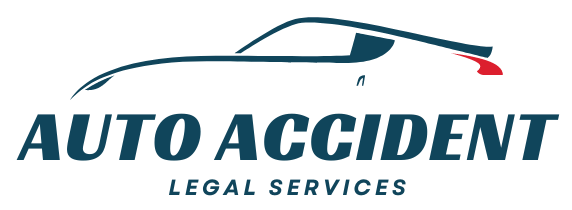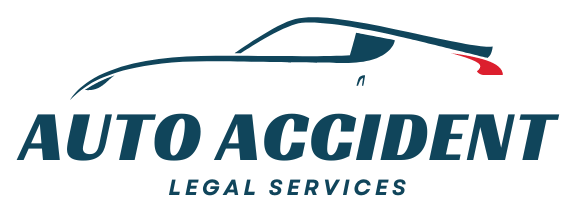YOUR LEGAL SUPPORT STARTS HERE.
INJURED IN AN AUTO ACCIDENT?
Take the first step towards seeking justice. Click below to schedule a consultation and explore your legal options.
STANDING STRONG TOGETHER:
ADVOCATING FOR THOSE INJURED IN A AUTO ACCIDENT
DO I HAVE A CASE?
FINDING OUT IS QUICK AND EASY
WHAT TO DO AFTER AN AUTO ACCIDENT
Experiencing a car accident can be a terrifying ordeal that significantly disrupts your daily routine. Severe injuries could occur, or you might find yourself without the use of your vehicle.
During these challenging times, seeking legal assistance may not be your immediate concern. However, obtaining a lawyer's help can facilitate the recovery of financial compensation for your medical bills and damaged property. In this article, we'll guide you through what you need to know about securing legal support following a car mishap.
It's essential to gather the following information before leaving the scene of your car accident:
- Vehicle registration numbers
- Names of the drivers
- Driver's residential addresses
- Driver's insurance details
- Contact numbers of all other vehicles involved in the incident
- Names, addresses, and phone numbers of any potential eyewitnesses
Obtain Medical Care Regardless of how you feel after the accident, it's crucial to seek medical attention immediately. Certain injuries might not manifest immediately but could become apparent over time. Acquiring medical attention enables you to document any injuries resulting from the accident. This documentation can back up your claims and help quantify your damages.
Choosing a proficient attorney can significantly influence your case's outcome. Conduct thorough research on potential attorneys by examining their track records, specialties, and client feedback. Select someone who focuses on personal injury or traffic accident cases, as they will have deeper insight into the complexities of such claims.
When meeting with your attorney, be ready to present detailed information about the incident for a preliminary evaluation of your case. Prepare to discuss the event comprehensively.
For your attorney to build a compelling case, collect as much evidence as possible. This includes photographs of the scene, injuries, and any property damage. Document any lost income or expenses incurred due to the accident. Obtain copies of medical records, police reports, and other relevant paperwork. The more complete your evidence, the better your attorney can argue your case.
Your conversation with your attorney should include all necessary details to comprehend the situation, including:
- The Road's Condition
- Weather conditions
- The time of day
- The precise accident location
- Detailed descriptions of the other involved (individuals and vehicles)
- A comprehensive account of the accident itself
You can usually find this information in the police report. This data will assist in determining who is responsible for the accident and whether the negligent party can invoke any defenses.
Inform your attorney if the police were called to the scene, whether a police report was filed, and if any traffic violations were issued to any parties involved. The lawyer will also want to know:
- if an ambulance or emergency response team was dispatched
- If photographs were taken
- If media crews were present
- Details and contact information of witnesses
This information aids in determining how easy or difficult it might be to substantiate your version of events or if another party is likely to succeed in their account.
There's certain evidence that will influence the probable amount of recovery. This includes details about:
- Any medical treatment administered
- Any X-rays or scans
- Hospitalization details
- Follow-up treatment
- Any diagnoses
Assessments of your property damage repair estimates, and other documents outlining your financial loss can be beneficial in demonstrating the accident's significant impact and substantiating the injuries suffered.
Car Insurance
The Role of Car Insurance Car insurance is crucial in dealing with the aftermath of a car accident. Uninsured and Underinsured Motorists In certain scenarios, the driver at fault may lack insurance, or their insurance coverage may be inadequate to cover the damages incurred. In these instances, your insurance policy may provide coverage for uninsured or underinsured motorists. Your attorney can review your policy's coverage options to ensure you receive adequate compensation.
Following a car accident, you'll likely have to engage with the other driver's insurance company. It's essential to remember that insurance adjusters aim primarily to limit their company's financial liability. Exercise caution when providing information to the adjuster. Avoid making statements that could potentially undermine your personal injury claim.
The Claims Procedure
The claims process can be daunting, especially when grappling with injuries and property damage. However, a competent car accident attorney can assist you in liaising with insurance adjusters and negotiating a fair settlement. They will also advise you on your options if your claim is denied or if a low settlement offer is made. To construct a robust car accident claim, gather all medical bills, repair estimates, and photographs of the accident scene and damages. Supplying this information to your car accident attorney and the insurance company can help validate your claim and increase the likelihood of a favorable outcome.
Get the Legal Help You Need:
In the aftermath of a car crash or auto accident, having reliable legal representation can be a game-changer. An experienced attorney will navigate the complexities of the legal process, gathering essential evidence and expert opinions to build a strong case on your behalf. They will skillfully handle negotiations with insurance companies and at-fault parties to ensure you receive fair compensation for your injuries and losses. With a dedicated legal team by your side, you can focus on your recovery while knowing that your rights are protected and your best interests are represented. Don't hesitate to seek the support you need during this challenging time.
AUTO ACCIDENTS:
- Car Accidents
- Motorcycle Accidents
- Truck Accidents
- Bike Accidents
- Train and Railroad Accidents
- Plane Crashes
- Helicopter Crashes
- Electric Car Fires
- Golf Cart Accidents
- Pedestrian Accidents
- ATV Accidents
Below, we address some common questions about car accident injuries. Please note, an attorney can answer these and other queries during a free case review:
1.What is the deadline for personal injury and wrongful death cases?
The deadline varies by state. Some states have shorter time limits for personal injury cases than wrongful death cases. Consult with an experienced attorney as soon as possible after an accident to ensure you don't miss the filing deadline.
2.What options are available for families who have experienced fatalities in car accidents?
Families who have lost a loved one in a car accident may be able to pursue a wrongful death claim against the at-fault driver or party. This can provide compensation for funeral expenses, loss of income, emotional distress, and other damages.
3. What should I do if I am involved in a motorcycle accident?
After a motorcycle accident, seek immediate medical attention for any serious injuries. Contact your insurance company and consult an attorney who specializes in motorcycle accidents.
4.How are payouts determined in personal injury cases?
Payouts in personal injury cases are typically determined by the extent of the injuries, the cost of medical treatment, lost wages, and other factors. Settlements can be negotiated with the at-fault party's insurance company, or if necessary, a personal injury lawsuit may be filed to pursue fair compensation.
5.What should I do if I receive a settlement offer from the at-fault driver's insurance company?
Before accepting any settlement offer, consult with an attorney to ensure that the offer adequately compensates you for your injuries and damages. Your attorney can help negotiate a higher payout if necessary.
6.Do I have to pay upfront for an attorney in a personal injury case?
Many personal injury attorneys operate on a contingency fee basis, which means you don't have to pay upfront. They only receive payment if they successfully recover a settlement or judgment on your behalf.
7.What types of compensation can I seek in a truck accident case?
In a truck accident case, you can seek compensation for medical expenses, property damage, lost wages, pain and suffering, and other damages. Your attorney will help you determine the appropriate amount of compensation based on the details of your case.
8.Can I seek compensation for whiplash injuries in a car accident?
Yes, you can seek compensation for whiplash injuries sustained in a car accident. Whiplash is a common injury resulting from rear-end collisions. It can cause long-lasting pain and discomfort. An attorney can help you pursue fair compensation for this injury.
9. Can I file a personal injury claim if I was injured in a work-related car accident?
If you were injured in a work-related car accident, you might be eligible for workers' compensation benefits. Depending on the circumstances, you may also have the option to file a personal injury claim against the at-fault party.
Consult an attorney to discuss your specific situation and legal options. If you've been involved in a car crash, it's advisable to consult an experienced personal injury lawyer for legal representation. An auto accident attorney can help optimize your recovery if you've been injured, or defend you if you're at fault. Many accident attorneys operate on a contingency fee basis, meaning that your lawyer only receives a fee if you're awarded damages or receive a settlement. Obtain an initial consultation from a seasoned car accident attorney. Don't delay in seeking legal advice about your car accident case.

